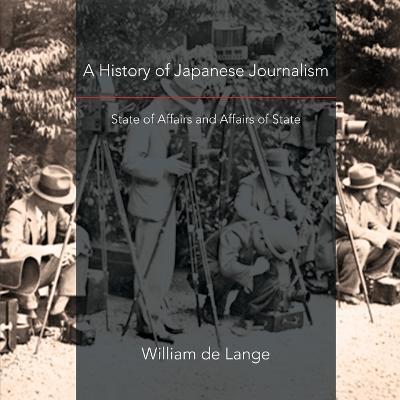A History of Japanese Journalism: State of Affairs and Affairs of State

A History of Japanese Journalism: State of Affairs and Affairs of State
The history of Japanese Journalism, though relatively short, is marked by periods of great upheaval and radical change.
It began during the two centuries of seclusion, when Dutch traders confined to the port of Nagasaki, through a small army of Japanese hereditary interpreters, conveyed information to the bakufu authorities about the outside world. All that changed during the bakufu's final years, when foreign entrepreneurs in Japan's treaty ports laid the building blocks for an indigenous press. Then came the Meiji era, when the press grew on a wave of rapid modernization, followed by the Taishō era, when it matured amid the volatile stand-off between a budding civil rights movement and an increasingly reactionary government. The darkest days came during the pre-war decade, when the military authorities curtailed the free press and turned it into a propaganda machine. The great revival came during the post-war Occupation, when the Allied authorities liberalized the press and enshrined its rights in the Peace Constitution.
Throughout all these years, one aspect of Japanese journalism has remained virtually unchanged, the kisha kurabu, the 'press clubs, ' an institution through which the Japanese authorities exert a measure of control over the flow of news that is unparalleled in any other democratic society.
PRP: 165.25 Lei
Acesta este Prețul Recomandat de Producător. Prețul de vânzare al produsului este afișat mai jos.
132.20Lei
132.20Lei
165.25 LeiLivrare in 2-4 saptamani
Descrierea produsului
The history of Japanese Journalism, though relatively short, is marked by periods of great upheaval and radical change.
It began during the two centuries of seclusion, when Dutch traders confined to the port of Nagasaki, through a small army of Japanese hereditary interpreters, conveyed information to the bakufu authorities about the outside world. All that changed during the bakufu's final years, when foreign entrepreneurs in Japan's treaty ports laid the building blocks for an indigenous press. Then came the Meiji era, when the press grew on a wave of rapid modernization, followed by the Taishō era, when it matured amid the volatile stand-off between a budding civil rights movement and an increasingly reactionary government. The darkest days came during the pre-war decade, when the military authorities curtailed the free press and turned it into a propaganda machine. The great revival came during the post-war Occupation, when the Allied authorities liberalized the press and enshrined its rights in the Peace Constitution.
Throughout all these years, one aspect of Japanese journalism has remained virtually unchanged, the kisha kurabu, the 'press clubs, ' an institution through which the Japanese authorities exert a measure of control over the flow of news that is unparalleled in any other democratic society.
Detaliile produsului










